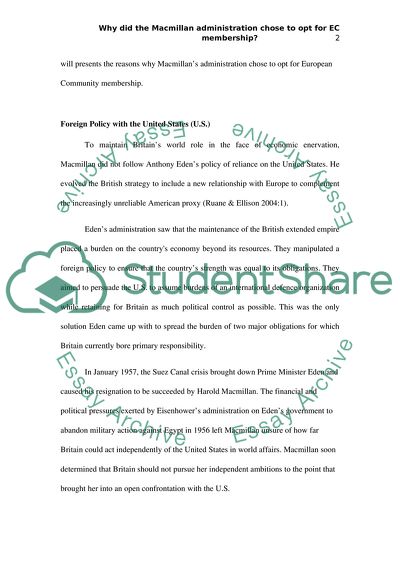Cite this document
(Why Did the Macmillan Administration Choose to Opt for EC Membership Essay Example | Topics and Well Written Essays - 1500 words, n.d.)
Why Did the Macmillan Administration Choose to Opt for EC Membership Essay Example | Topics and Well Written Essays - 1500 words. https://studentshare.org/politics/1542808-why-did-the-macmillan-administration-chose-to-opt-for-ec-membership
Why Did the Macmillan Administration Choose to Opt for EC Membership Essay Example | Topics and Well Written Essays - 1500 words. https://studentshare.org/politics/1542808-why-did-the-macmillan-administration-chose-to-opt-for-ec-membership
(Why Did the Macmillan Administration Choose to Opt for EC Membership Essay Example | Topics and Well Written Essays - 1500 Words)
Why Did the Macmillan Administration Choose to Opt for EC Membership Essay Example | Topics and Well Written Essays - 1500 Words. https://studentshare.org/politics/1542808-why-did-the-macmillan-administration-chose-to-opt-for-ec-membership.
Why Did the Macmillan Administration Choose to Opt for EC Membership Essay Example | Topics and Well Written Essays - 1500 Words. https://studentshare.org/politics/1542808-why-did-the-macmillan-administration-chose-to-opt-for-ec-membership.
“Why Did the Macmillan Administration Choose to Opt for EC Membership Essay Example | Topics and Well Written Essays - 1500 Words”. https://studentshare.org/politics/1542808-why-did-the-macmillan-administration-chose-to-opt-for-ec-membership.


